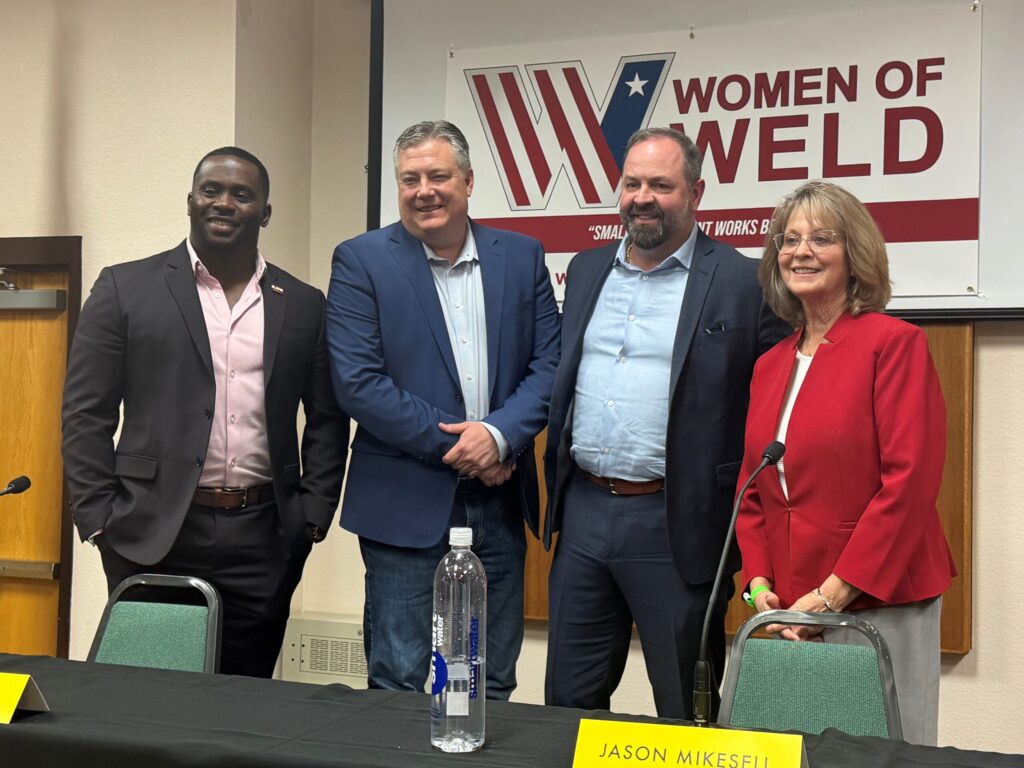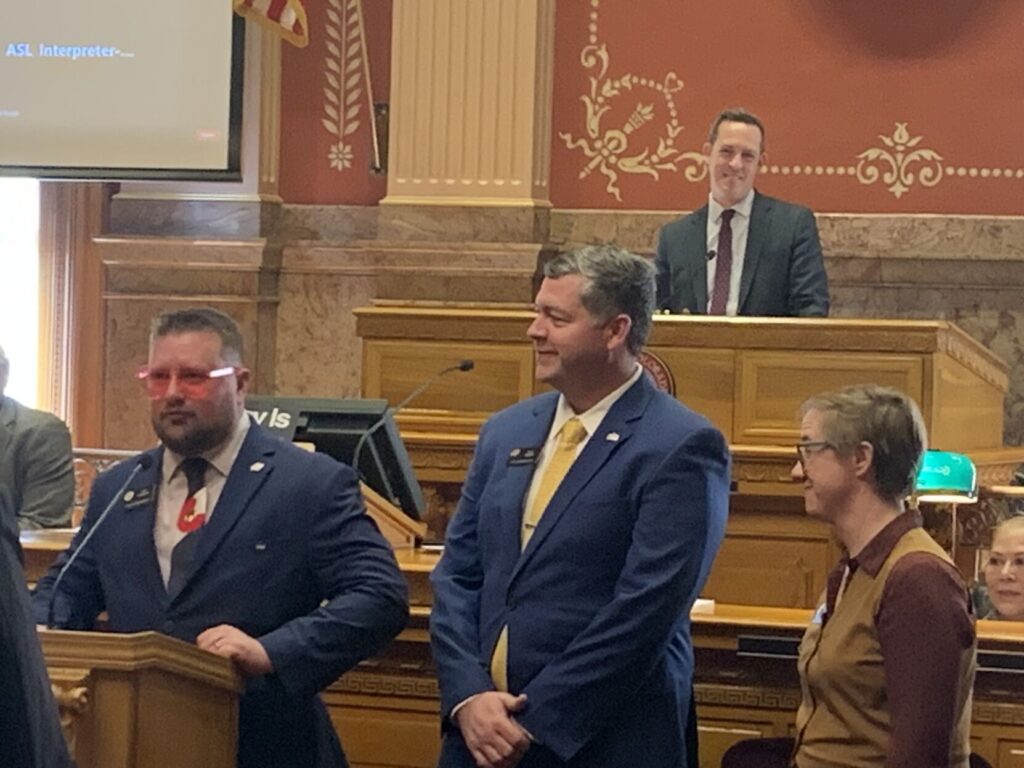Cannabis industry has arrived, marketing expert tells Colorado business group

Like it or not, the cannabis industry has arrived.
One of the industry’s leading marketing gurus told a business networking group in Centennial last Thursday that regulation has made Colorado’s growing cannabis market a success – at least for now.
The Opportunity Coalition, which sponsors forums for business owners and entrepreneurs to connect, brought Dixie Elixir’s marketing chief Joe Hodas to discuss the growth of the industry in Colorado.
Brian Watson, the coalition’s founder, said the cannabis industry is gobbling up industrial warehouse space all over Colorado. That’s driving up the cost of that space for other businesses because the growers are paying a premium price. Whether businesses like it or not, he said, the industry has arrived and is an inescapable part of the business landscape.
Hodas has been with Dixie Elixirs for 18 months, though he also handled brand marketing for the company before that, when he was partner and vice president of Dixie’s PR firm Vladimir Jones.
Hodas said he took the job at Dixie, in part, because he saw it as an opportunity to effect social change, and he’d been fascinated by research into the company’s consumers, including grandmothers who took cannabis for anxiety or forklift operators who took it for back pain. “It began to tip me off to the fact that there was a much wider consumer base” than the public perception of the marijuana user, he said.
“I can sit on the sidelines and watch this industry unfold … or be on the inside and help effect change,” he said. Since joining the company, he’s been involved in legislation, rules and regulations, and an education campaign for school children with the Colorado Department of Public Health and Environment.
One of those social changes, Hodas said, is a drop in the number incarcerated for marijuana, particularly African Americans. “If we continue to do the right things, demonstrate a responsible industry and put the right safeguards in place, think about what happens to all those people who might have been put in prison” for marijuana use or possession, he asked. They can be productive members of society instead of sitting in jail for a quarter of an ounce of marijuana, he said.
Marijuana has had a positive impact on Colorado, Hodas said. Many business and elected leaders predicted the state would suffer once marijuana was legalized, but it hasn’t happened, he said. Instead, the industry has had a positive effect on the state’s economy, created opportunity for businesses and spurred additional building and development. Hodas believes the industry has contributed to Colorado tourism, but he said it’s frustrating Denver and state officials won’t acknowledge it.
Part of the reason the industry has done so well is due to regulations established by the General Assembly and state agencies. “We believe regulation is our friend and we welcome it,” he said.
In California, for example, Hodas said the industry is a mess because of insufficient regulation. The state doesn’t track products from seed to sale, or plant counts, and there are no limits on edibles and how they are packaged. Those regulations, which are in place in Colorado, are critical to establishing the industry as responsible and allowing it to grow, he said. However, five years from now, Hodas said he could be singing a different tune, and the industry might be asking the state to ease up on regulations.
“I’d rather see us go too far and peel some of it back,” he added.
Hodas later told The Colorado Statesman that the focus on testing and dose regulation has been critical. He also cited caps on production – the number of licenses awarded or plants produced – as key factors allowing the industry to grow appropriately.
On the flip side, Hodas said the legislature had a “knee-jerk” reaction to edibles in the last session, passing a law to require manufacturers to stamp their products. “We have child-proof packaging, lower-dose products in place. There’s a certain point when there’s a diminishing return on investment, and we’re not letting things settle enough, so we can take a step back” and determine what’s working.
As for the industry itself, Hodas said a third of the businesses are doing quite well, a third are hanging on and the final third are struggling. The results of the next presidential election will make a big difference for the next decade, he said. Will marijuana be legalized nationwide? Hodas believes it will happen, but it’s at least five years away, if not more. In the meantime, there are other steps that need to be taken, such as fixing banking issues and adjusting interstate commerce rules.
The banking problem looms large for the industry, as federal regulations prohibit banks from conducting transactions for illegal products, and marijuana is still illegal under federal law. Cannabis growers and others in the business can’t get loans that would help those businesses expand, he said. And since it’s largely a cash-only business, the banking issue creates safety problems for employees who are paid in cash. Unfortunately, it could take a serious security crisis for real change, Hodas warned.
For those who want to get involved in the industry, Hodas advised examining the infrastructure of a mature industry, any industry. Find out what the cannabis industry is lacking and focus on that, he suggested.
– info@coloradostatesman.com













